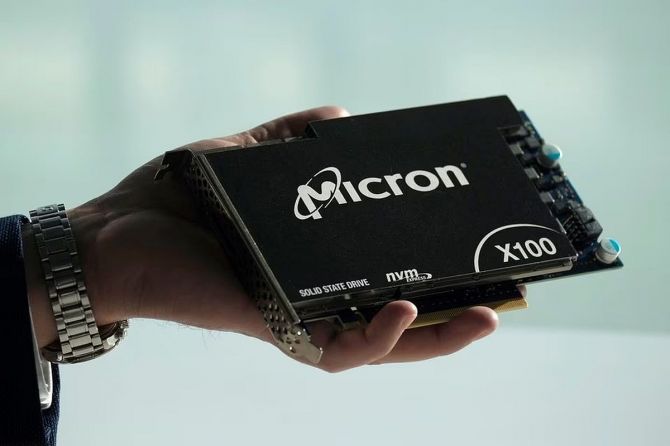US-based chipmaker Micron Technology is expecting demand for semiconductors to rise significantly in the next few years, globally and in India, as memory consumption is going up, largely driven by the widespread adoption of technologies like artificial intelligence (AI).

“Memory consumption is expected to double by the end of the decade and the biggest driver in this is AI.
"While it’s natural to talk about compute and GPUs (graphics processing units) in the context of AI, it is not to be forgotten that the true enabler for AI is memory … in all the AI engines that we talk about, there is a lot of need to access memory quickly,” Anand Ramamoorthy, managing director, Micron Technology India, told Business Standard.
The market size for global semiconductor memory was valued at $104.58 billion in 2022 and the worldwide semiconductor memory market is expected to touch $201.91 billion by 2032, according to a research report published by Spherical Insights & Consulting.
Ramamoorthy said AI was not just restricted to data centres but extended across other electronics goods.
“We have PC (personal computer) makers talking about an AI PC and smartphone vendors talking about bringing more AI capabilities on their smartphones.
"So, what is going to happen is with all these capabilities coming in, you need more memory,” he added.
From an India perspective, apart from PCs and smartphones, demand is also coming from verticals like electric vehicles (EVs), fintechs, and large language models (LLMs).
“We see momentum in EVs, both in four-wheelers and two-wheelers, though it’s stronger in the two-wheeler segment right now, thanks to government incentives.
"Second, the digitalisation wave through fintechs will further augment the use of data centres.
"The third driver is the development of LLMs. Bharat GPT, for instance, is India’s attempt to have its own LLM with local linguistic context,” Ramamoorthy said.
On June 28, Micron had inked a pact with the Gujarat government for setting up a semiconductor-manufacturing facility in the state.
In September, the company carried out the “ground breaking” ceremony to begin constructing its $2.75 billion assembly, testing and packaging plant (ATMP) in Sanand, Gujarat.
“Setting up the manufacturing plant in Sanand is part of our global diversification strategy.
"Our customers want their vendors to be globally diversified. And all our factories that we have are both for internal and external consumption.
"Construction is in full swing and we are progressing in accordance with the milestones.
"The facility in Sanand is expected to generate 5,000 direct jobs and 15,000 indirect jobs once it is in full throttle,” Ramamoorthy said.
The global semiconductor industry has been facing supply chain imbalances over the past few years but it is expected to stabilise soon.
“The imbalance is being sorted out in many of the business verticals.
"We are hoping that next year and the year after will be periods of good growth.
"It has been predicted that semiconductors are poised for good annual growth over the next couple of years, not just memory and storage that we are part of but from an overall industry perspective,” Ramamoorthy said.












 © 2024 Rediff.com -
© 2024 Rediff.com -